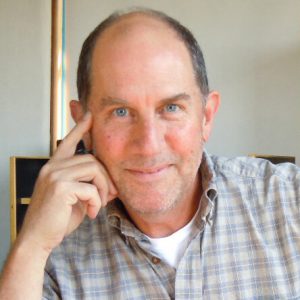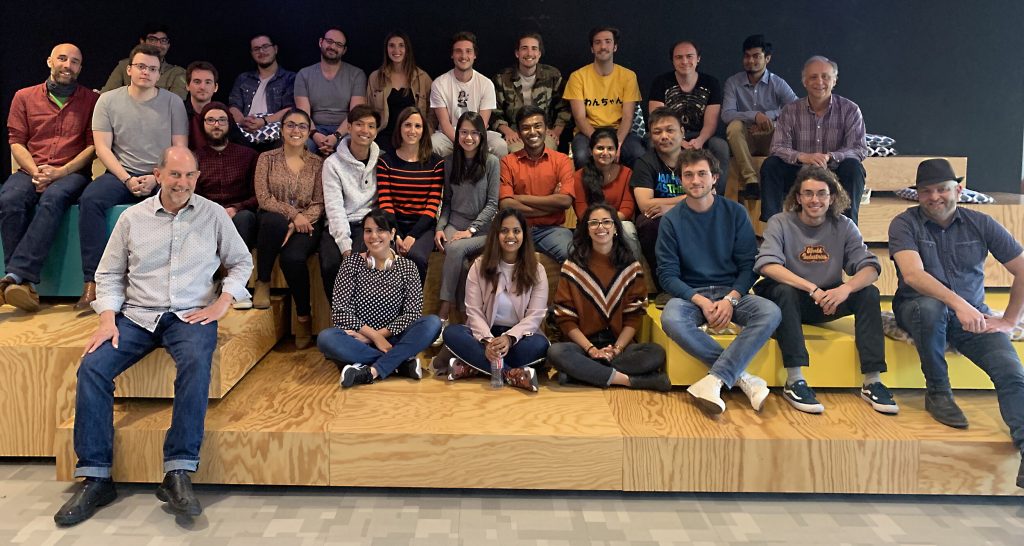
With all of the excitement and funding directed at artificial intelligence, machine learning, blockchain, and gene editing, it is hard to remember that one of the most consistently innovative and financially robust sectors in the United States is the “creative industry.”
According to a March 2019 National for the Endowment of the Arts report—the contribution of culture and art to the U.S. economy is $800 billion per year, bigger than economic output of Sweden. The report noted that more than 5 million Americans work in the arts-and-culture economy, generating nearly $400 billion in wages in 2016 from 35 key arts-and-culture fields, such as broadcasting, movies, streaming, publishing, the performing arts, and arts-related retail.
One of the people who knows this information best is Richard S. Andrews, who teaches arts entrepreneurship at Cal. Andrews has worked in arts management for over two decades—serving as associate director of the UC Berkeley Center for New Music and Audio Technologies and executive director of the Eco Ensemble—and has witnessed dramatic changes to the arts driven by digital outreach, distribution, and streaming and the culture of “free” content on the Internet. In an interview in Blum Hall, he pointed out that the vast majority of successful musicians today no longer make their income from song or album sales but from tickets for concerts and tours; meanwhile, streaming services and YouTube have become the new middlemen.
These changes, Andrews says, have increased the need for education not just in arts management but in arts entrepreneurship. Since 2013, Andrews’ courses have attracted students from arts and non-arts majors interested in the tools, techniques, and concepts needed to invent, launch, and sustain a business in the creative sector. He has even written a book on the subject, just out from Routledge.
Explains Richard: “My course is practical and hands-on. We go through the main business idea: What is the product or service you are offering? What problem does it solve? What needs does it address? How will you understand the premise of such a product or service in the marketplace? Can you do marketing analysis? Can you understand competition or partners? The thing about the arts as a business is you’re not necessarily trying to take customers away from the gallery or theater down the street. You might actually be collaborating with them.”

This spring, with support from the Big Ideas Contest and the Sutardja Center for Entrepreneurship & Technology, Andrews will teach LS 105 Arts Entrepreneurship Mondays 2-5 pm. In addition, he will offer a seminar tailored to Big Ideas finalists and non-finalists in the Art and Social Change track, which will meet four times during the semester. Students will learn concept development, marketing analysis and marketing plans, fundraising, legal issues, financial management, and then submit a business plan outline and present a short pitch. Guest presentations will include people from California Lawyers for the Arts, crowdfunding platforms such as Kickstarter, and alumni working in various creative fields.
For Big Ideas Director Phillip Denny, the class and seminars are intended to provide Big Ideas applicants in the Art and Social Change track with instruction, feedback, and support as they develop and refine their art-based social start-up concepts. Denny notes that the Arts and Social Change track was developed eight years ago to diversify the ideas, projects, and students coming into the social innovation contest that now attracts 1200 students per year across all 10 University of California campuses and two foreign universities.
“We wanted to get more students from outside engineering and business,” explained Denny. “We wanted to get more women engaged. We wanted to open up entrepreneurship to other parts of the campus. We want to get more out-of-the-box ideas. And that has happened.”
Among the students who have benefitted from both the Big Ideas Contest and Andrews’ arts entrepreneurship class is Skylar Economy, who received her BA in Film & Media Studies in 2016 and has since co-founded Photogénie Films. “FITE Film,” a short documentary directed by Economy about four formerly incarcerated students at UC Berkeley and their path to higher education and success, was honored with the 2016 Clinton Global Initiative Selected Commitment, Fast Company’s World Changing Idea Finalist 2016, and Red Bull Amaphiko Social Entrepreneurship Finalist 2016.
Economy credits the combination of the Big Ideas Contest (FITE Film won first place in the Art & Social Change track in 2016) and Andrews’ course with her setting her on a path to arts entrepreneurship.
“Now I own an art business,” she said in a 2019 video interview. “If you had told me that when I was a freshman in college, I would never have believed it.”